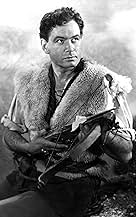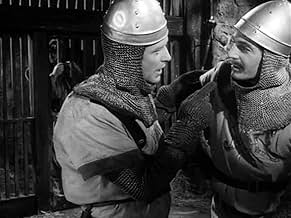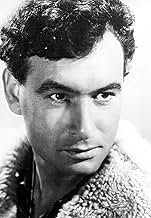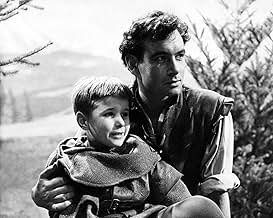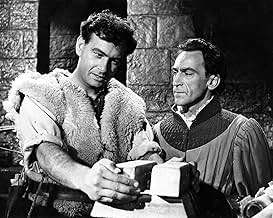I remember this series from years ago when it was shown on UK TV. Watching the box-set episodes in quick succession, certain observations come to mind. Conrad Phillips as William Tell is well cast as the hero, and Willoughby Goddard makes a great Gessler, but after a while, the episodes with Tell and Gessler take on a similar pattern with Tell getting the better of Gessler. The other cast members are interesting for different reasons though.
Walter Tell (Richard Rogers) appears regularly to start with and then disappears for a long time; but Hedda Tell (Jennifer Jayne) is the most interesting. She is no shrinking violet and readily picks up crossbow and sword and pitches in when necessary; maybe she is TV's first Feminist before the word Feminist was invented: and she also starts off regularly but her appearances diminish with time. Could the viewing lads and lasses have found Hedda more appealing than William? An actor's ego can be a fragile thing.
Also of interest are the minor cast members who would go on to greater things - among them Christopher Lee, Patrick Troughton, Warren Mitchell and an early appearance of Michael Caine.
All things considered, the cast and crew did a fine job producing an adventure series which has stood the test of time and is worth watching today.

